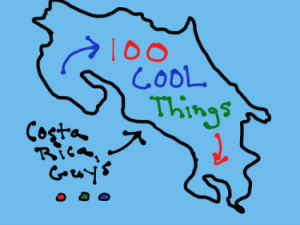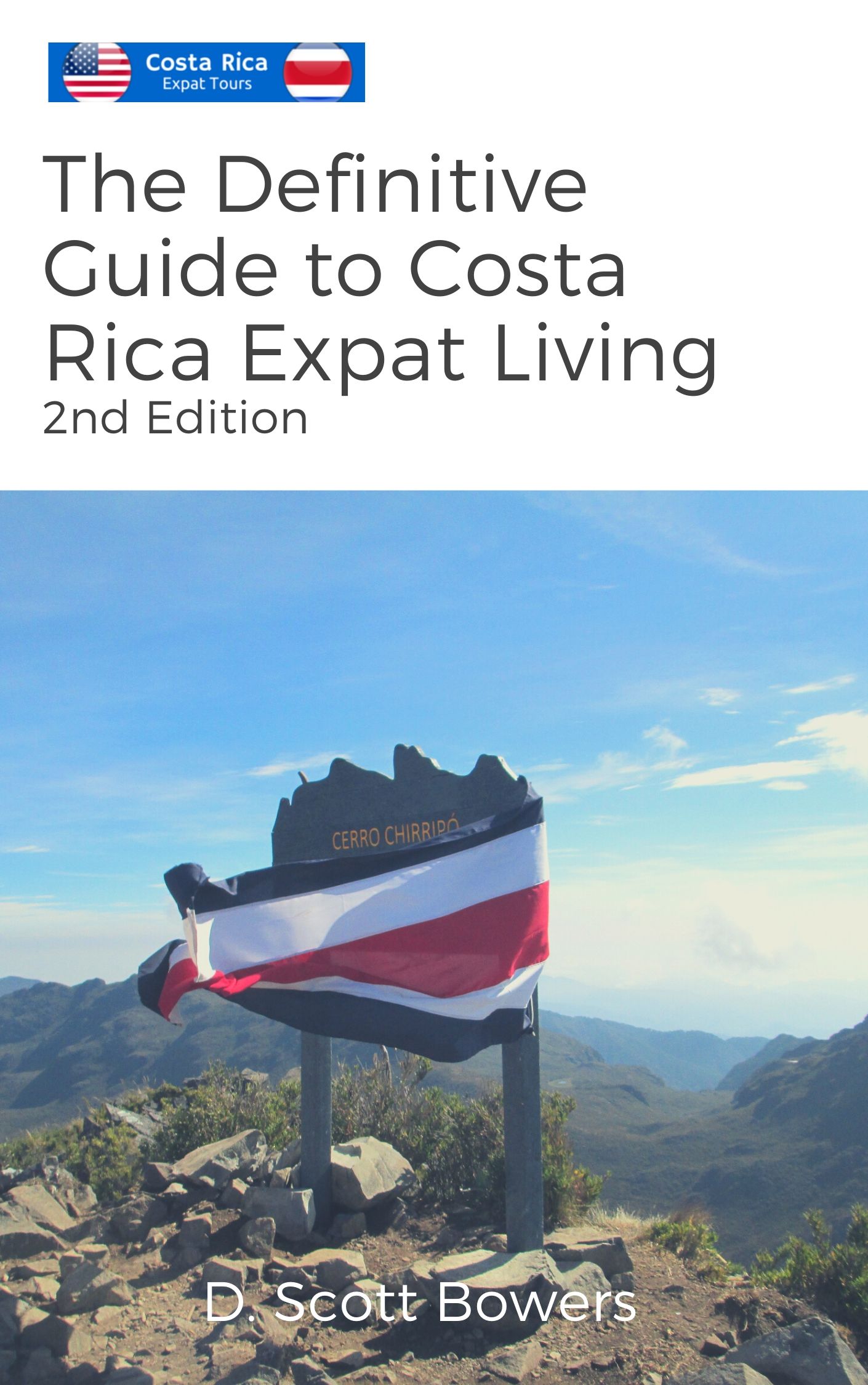 Costa Rica, like the U.S., has also experienced its own period of racial intolerance. Black people were brought to Costa Rica in the late 1800’s from the West Indies to work on the banana plantations and on the railroad connecting Limón with the Central Valley. Soon thereafter laws were passed that curtailed immigration by people of color and also restricted the movement within the country of those already here. Well, all of that has changed drastically. So much so, that a black woman has a chance of gaining the nomination of her party (the PAC, or Partido Acción Ciudadana) in the presidential election that will be held in about 12 months. Her name is Epsy Campbell and she is the descendant of Jamaican immigrants who also came to work on the railroad. She grew up very poor and married at the age of 19. She later gave birth to two girls and worked as a school teacher. She got interested in environmental and educational issues and became a community organizer (shades of Obama) in Limón. She moved back to San Jose and finished her education with a college degree in economics. In 2002, at the request of PAC leaders, she won a seat in the Legislative Assembly. Now she is bucking party leadership and seeking the nomination for president, which puts her at odds with powerful PAC founder, Ottón Solís. Campbell, like Obama, is a believer in a heightened role of government in a democratic society. Like Obama, Campbell believes the government has a crucial role to play in issues like protecting the environment and the rights of poor people. The great debate between “big” government versus “small” government is raging in democratic societies like the U.S. and Costa Rica these days. The economic crisis that the world faces has provided ample fuel for that debate. It appears, from the situation in the U.S. (which has on a smaller scale played out here as well), that for the government to just step aside and let capitalism run its course doesn’t work that well. It doesn’t work well it seems because the powerful tend to exploit the powerless, at least for a season. That exploitation may take the form of raping the environment upon which the powerless rely for a major portion of their subsistence. It may take the form of raping companies so that upper level management gets richer while workers at the bottom get poorer. Whatever, form it takes, the end result is unsettling for everyone, which is exactly what we are experiencing right now. And it also opens the door for populist zealots like Hugo Chavez and Daniel Ortega who claim to be “for the people” when the true goal is only to seize the most power possible for themselves (and woe be it to anyone who stands in their way). Leaders like Obama and Campbell, who grew up understanding what it means to be oppressed in a democratic and free society, are well suited to find that sacred “middle-ground” of big versus small government. They also are well positioned to appeal to our better angels. That is, those same angels that motivated them to rise above many obstacles to achieve things that many thought impossible just a few years ago. I applaud Mrs. Campbell and Mr. Obama and hope that they can find that sacred middle ground. There have always been times throughout history when it was necessary to find that place. That place where government may not be “the” answer, but it is “an” answer. We just celebrated the 200th birthday of one who found it, Abraham Lincoln. What the world needs right now are more leaders dedicated to that search.
Costa Rica, like the U.S., has also experienced its own period of racial intolerance. Black people were brought to Costa Rica in the late 1800’s from the West Indies to work on the banana plantations and on the railroad connecting Limón with the Central Valley. Soon thereafter laws were passed that curtailed immigration by people of color and also restricted the movement within the country of those already here. Well, all of that has changed drastically. So much so, that a black woman has a chance of gaining the nomination of her party (the PAC, or Partido Acción Ciudadana) in the presidential election that will be held in about 12 months. Her name is Epsy Campbell and she is the descendant of Jamaican immigrants who also came to work on the railroad. She grew up very poor and married at the age of 19. She later gave birth to two girls and worked as a school teacher. She got interested in environmental and educational issues and became a community organizer (shades of Obama) in Limón. She moved back to San Jose and finished her education with a college degree in economics. In 2002, at the request of PAC leaders, she won a seat in the Legislative Assembly. Now she is bucking party leadership and seeking the nomination for president, which puts her at odds with powerful PAC founder, Ottón Solís. Campbell, like Obama, is a believer in a heightened role of government in a democratic society. Like Obama, Campbell believes the government has a crucial role to play in issues like protecting the environment and the rights of poor people. The great debate between “big” government versus “small” government is raging in democratic societies like the U.S. and Costa Rica these days. The economic crisis that the world faces has provided ample fuel for that debate. It appears, from the situation in the U.S. (which has on a smaller scale played out here as well), that for the government to just step aside and let capitalism run its course doesn’t work that well. It doesn’t work well it seems because the powerful tend to exploit the powerless, at least for a season. That exploitation may take the form of raping the environment upon which the powerless rely for a major portion of their subsistence. It may take the form of raping companies so that upper level management gets richer while workers at the bottom get poorer. Whatever, form it takes, the end result is unsettling for everyone, which is exactly what we are experiencing right now. And it also opens the door for populist zealots like Hugo Chavez and Daniel Ortega who claim to be “for the people” when the true goal is only to seize the most power possible for themselves (and woe be it to anyone who stands in their way). Leaders like Obama and Campbell, who grew up understanding what it means to be oppressed in a democratic and free society, are well suited to find that sacred “middle-ground” of big versus small government. They also are well positioned to appeal to our better angels. That is, those same angels that motivated them to rise above many obstacles to achieve things that many thought impossible just a few years ago. I applaud Mrs. Campbell and Mr. Obama and hope that they can find that sacred middle ground. There have always been times throughout history when it was necessary to find that place. That place where government may not be “the” answer, but it is “an” answer. We just celebrated the 200th birthday of one who found it, Abraham Lincoln. What the world needs right now are more leaders dedicated to that search.








Comments
zaida Barr
I read your comment about Epsy. I believe that you are right on target with most of what you have said expept for the fact that she was a school teacher. I am a very close family member and I have known epsy all my life, but I don’t recall her being a school teacher. I have one myself for more than 20 years. You might want to get that fact straight!
Scott
Thanks for the clarfication. I read that “fact” in one of our newspapers, can’t remember which one. Anyway, your comment stands as an adequate correction….